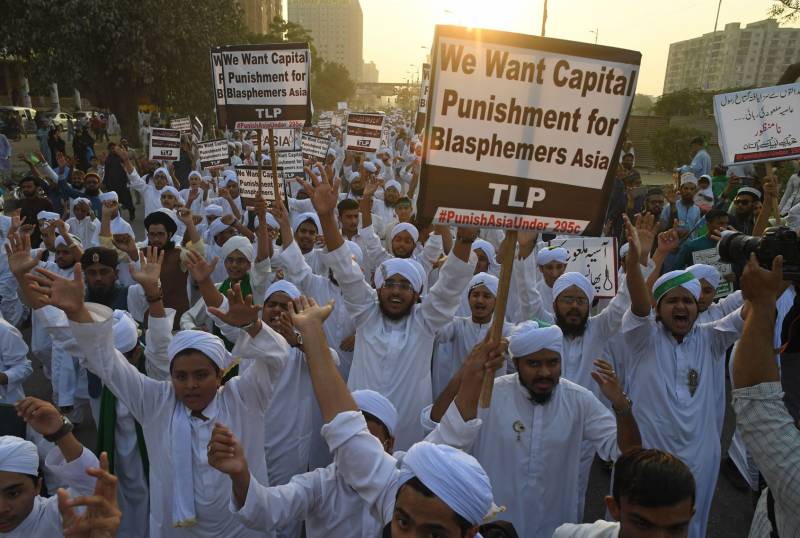
Pakistan's blasphemy laws, with roots tracing back to the British colonial legal system of 1860, were originally crafted to quell Hindu-Muslim violence in the Indian subcontinent. These archaic laws, largely untouched since Pakistan's independence in 1947, underwent significant amendments in 1974, when a constitutional change declared the Ahmadiyya sect—a religious minority of 500,000—as "non-Muslim."
Since 1987, these laws have been weaponized, resulting in over 2,000 blasphemy accusations and at least 88 deaths, as reported by the Centre for Social Justice (CSJ), an independent Lahore-based advocacy group for minority rights. This alarming statistic underscores a deep-seated pattern of religious fanaticism, with societal and institutional endorsements perpetuating violence against those accused of blasphemy.
The recent murder of a tourist from Sialkot, Punjab, accused of "insulting the Quran" in Swat, has reignited fierce debate over Pakistan's blasphemy laws. Despite being in police custody, a frenzied mob forcefully removed him from the station, brutally killed him, and set his body ablaze. In a shocking escalation, the mob also torched the police station, as evidenced by videos circulating on social media. This harrowing incident starkly underscores the severe peril faced by individuals accused under these oppressive laws.
In May 2024, a mob in Sargodha, Punjab, brutally attacked a 70-year-old Christian man, accusing him of desecrating the Quran. This violent assault escalated into a riot, with the arson of shops and homes belonging to other Christian families, starkly illustrating how mere allegations can incite widespread violence.
This disturbing trend continued in February 2023, when an enraged mob stormed a police station in Nankana Sahib, Punjab, forcibly removing and murdering a man accused of blasphemy. The act, widely circulated in online videos, reveals a chilling disregard for due process and the rule of law.
The year 2023 was particularly harrowing for Christian communities in Punjab's Jaranwala town. Accusations of Quran desecration by two brothers led to the destruction of 22 churches and nearly 100 homes. In Faisalabad, similar blasphemy allegations provoked another mob attack, resulting in widespread vandalism of churches, homes, and a cemetery. Despite advance warnings, police inaction reflected systemic negligence and complicity.
In July 2023, an Ahmadiyya place of worship in Karachi was vandalized, followed by an attack on an Ahmadi-owned factory in Lahore in August. Shockingly, instead of prosecuting the assailants, authorities charged eight Ahmadi community members with blasphemy, exemplifying blatant miscarriages of justice.
Since 1990, at least 65 individuals have been killed over blasphemy allegations, revealing a society increasingly driven by religious zealotry. In March 2013, a mob of 1,000, incited by blasphemy allegations against a Christian man, attacked Joseph's Colony in Lahore, looting and burning over 150 houses as police stood by. Similarly, in August 2009, a mob in Gojra, Punjab, set a Christian hamlet ablaze, killing seven people. These incidents illustrate the impunity with which such violence is often perpetrated.
Section 295-C of Pakistan's penal code, known as the blasphemy law, mandates a death sentence for blasphemy offenses. The CSJ reports that from 1987 to 2016, at least 1,472 people were charged under these provisions. While no executions have occurred, several individuals remain on death row, and many others serve life sentences, further entrenching fear and persecution among religious minorities.
The alarming rise in blasphemy accusations and the resultant violence underscore an entrenched religious fanaticism within Pakistani society. This fanaticism perpetuates a vicious cycle of violence and discrimination in the society. The lackluster implementation of the National Action Plan and Pegham-e-Pakistan narrative underscores a disconcerting lack of commitment from state institutions.

